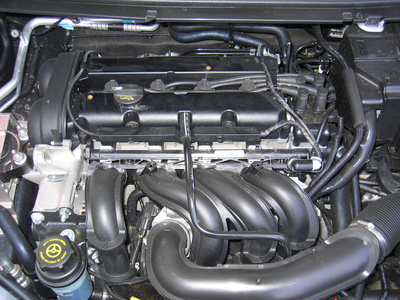
For many, vacuum repair is a puzzlement that can frustrate and confuse even with their best efforts. With older diesel Mercedes, this is particularly true, since they have a rather sophisticated vacuum system with many components furnishing vacuum to the engine and practically every other on board feature. The vacuum system around the oil filter housing is one of the more common areas for these leaks to occur. Follow a deliberate process to check the most common vacuum leak locations.
Check the main vacuum pump first. Crank the car, raise the hood and disconnect the main brake booster fitting using a 19 millimeter wrench. Hook the vacuum gauge up to get a vacuum pressure reading.
Look for a vacuum pressure of around 20 hg to let you know the main vacuum pump is furnishing good vacuum pressure to the system. Check the check valve in the vacuum pump, or replace the vacuum pump if the vacuum pressure reading is low or fluctuates greatly. Move on to the next vacuum check if you get a solid vacuum pressure reading.

Check the metering valves in the main supply line next. The supply line metering valve has two small, fragile connectors, which are brittle and will crack and leak. Use caution when removing them.
Disconnect the supply side of the line servicing the dashpot, or transmission vacuum, next. Hook your gauge to it and check it for leaks. Replace the dashpot and connector if you see leaks or get an insufficient pressure reading, such as 10 hg or below, and the car is experiencing harsh, jerky transmission shifting.

Test the door lock check valve next. Hook up your hand vacuum pump to the supply side. Block both outlet nipples and take a reading. Replace the door lock check valve and both pieces attached to it if you detect a leak after testing it.
Hook up the hand pump to both yellow lines of the door lock check valve, one at a time, with the other blocked off. Try to pull and hold vacuum on each of them. Check the door actuators for leaks, or a master vacuum switch if you cannot hold vacuum on either or both of these yellow lines.

Locate the vacuum lines coming through the firewall. Find the green line with the yellow stripe. This line is the one most apt to have more than one leak because of how it services the HVAC and all its features. Test it in the same way by pulling and holding vacuum.
Be sure to check the solid black line with your hand pump. Replace it if you find a leak since it is the supply line for the vacuum reservoir. Find the vacuum reservoir either behind the driver’s side front wheel well or in the trunk.
